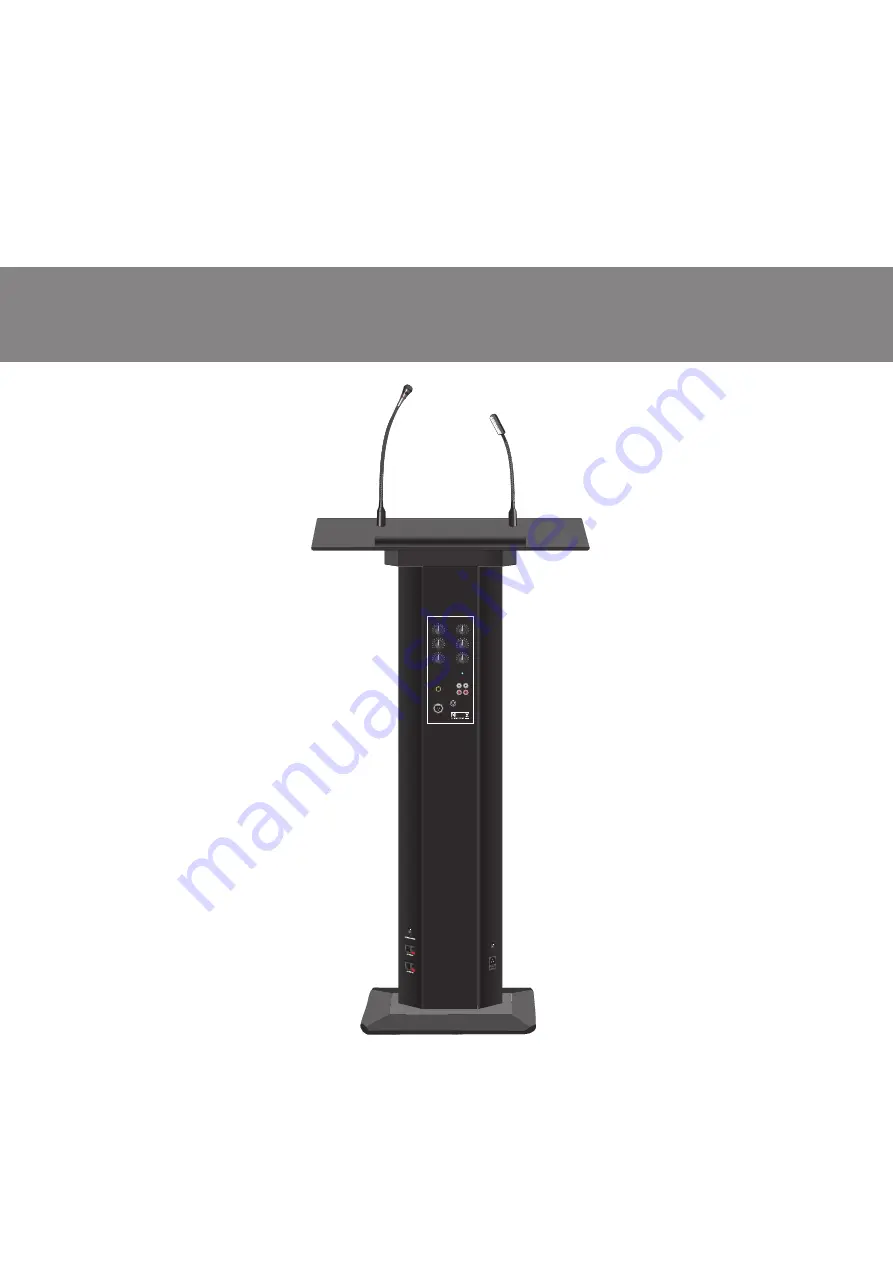
User’s Manual
P/N
18806
Commercial Audio 60-Watt Powered Lectern
with Gooseneck Microphone and LED Light
POWER
AC 120V
50-60Hz
BASS
AUX 1
MIC 2
PRE-OUT
AUX 1 REC OUT
MIC 1
MIC 2
MIC 3
0
10
1 - GND
2 - HOT
3 - COLD
TREBLE
0
-5
+5
0
10
0
-5
+5
0
10
0
10
PL
P/N
18806
Made in China